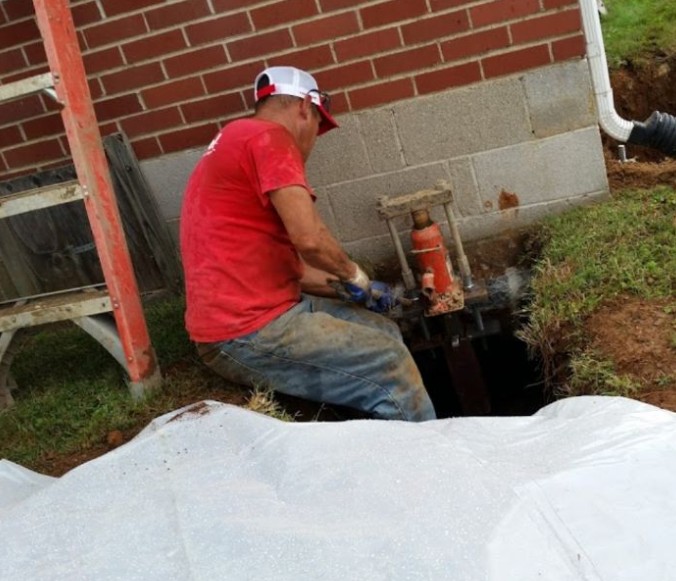
The Cheapest Ways to Address Minor Home Foundation Repair Problems in Fishers Before They Grow
Your home’s foundation is one of its most important structural components. Even small problems like cracks or uneven floors can become costly if left alone. Luckily, if you catch these signs early, there are affordable ways to take care of them before major repairs are needed.
Taking early action not only protects your home’s value, but it can also save you thousands of dollars. This blog is written to help homeowners understand how to handle home foundation repair in Fishers without stretching their budget. With a little awareness and the right steps, you can keep your home stable, safe, and secure.
Why Small Foundation Problems Matter
It’s easy to overlook a small crack in the basement wall or a slightly sloping floor. But these small signs often point to bigger problems underneath. Over time, minor damage can grow, affecting the structural integrity of your home.
Foundation issues can lead to:
- Sticking doors or windows.
- Uneven or sagging floors.
- Cracks in drywall or brick.
- Water seepage in the basement.
- Pest infestations through small gaps.
Early home foundation repair can stop these problems in their tracks—before they require more invasive and expensive fixes.
What Causes Minor Foundation Issues?
Understanding the cause of foundation trouble helps you choose the right solution. Here are the most common reasons for small foundation problems:
- Soil shifting or settling under the foundation.
- Poor drainage leads to water pooling near the home.
- Tree roots are growing too close to the foundation.
- Freeze-thaw cycles cause soil movement.
- Normal wear and age of the home’s structure.
The good news? If you act quickly, many of these problems can be corrected early without expensive repairs.
Affordable Ways to Handle Small Foundation Problems
1. Improve Drainage Around Your Home
Water is a major enemy of a healthy foundation. Ensure your gutters are clean and that downspouts are directing water at least 6 feet away from your house. Poor drainage leads to soil erosion or oversaturation, which can cause shifting and cracks.
Adding inexpensive drainage solutions—like splash blocks, extensions, or gravel trenches—can protect your foundation from water damage.
2. Regrade the Soil
Over time, soil around your home may settle and slope toward the foundation. This allows water to pool around the base of your house. The soil is a simple fix that can often be done with a shovel and a few bags of topsoil.
Ensure the ground slopes away from your home by at least 6 inches over the first 10 feet. This helps keep moisture from seeping into the foundation.
3. Seal Small Cracks Yourself
Applying a concrete patch or sealant can stop moisture and pests from entering for very small, non-structural cracks (usually less than 1/4 inch wide). Many hardware stores carry foundation crack repair kits that are easy to use and cost-effective.
However, if the crack reopens or grows over time, it’s best to call a professional for a full assessment.
4. Install a Dehumidifier
Basement or crawl space moisture can lead to foundation problems like wood rot, mold, or erosion. A dehumidifier helps control indoor humidity and prevents moisture buildup. This simple tool can help protect your home’s foundation while improving air quality and comfort.
You don’t need a high-end model—many basic units are affordable and energy efficient.
5. Remove Problem Trees or Roots
Tree roots that grow too close to your foundation can pressure the walls and absorb moisture from the soil, causing it to shift. If you notice signs of root damage or cracking near trees, consider hiring a professional to trim or remove them.
Root barriers can be installed as a low-cost solution to keep roots from spreading into the foundation zone.
6. Monitor Foundation Movement
Installing small crack monitors or measuring changes over time is an inexpensive way to track foundation issues. Keeping a photo log and noting shifts every few months helps you catch changes early, before major settling occurs.
You can schedule home foundation repair before damage becomes extensive by staying alert.
7. Schedule an Affordable Inspection
Some companies offer low-cost or even free foundation inspections. A professional can identify early warning signs and recommend simple, budget-friendly solutions to stabilize the home. Catching issues now can prevent large-scale repairs later.
Getting a professional opinion also provides peace of mind that you’re not missing something serious.
When to Call in the Pros
While minor problems can often be handled independently, knowing when to contact a professional is important. Here are signs that your issue might need expert help:
- Cracks wider than 1/4 inch.
- Cracks that grow over time.
- Uneven or bowing walls.
- Doors and windows that won’t open or close.
- Water is pooling inside the basement or crawl space.
Getting professional help early can prevent structural damage and reduce the overall cost of repairs.
Conclusion
Foundation problems don’t always require major repairs, especially if you catch them early. With simple, cost-effective fixes like improving drainage, sealing small cracks, and regrading your yard, you can protect your home without a huge price tag.
Smart maintenance and regular check-ins are the best way to avoid more serious foundation issues. Now is the perfect time to act if you’re unsure where to start or have noticed signs of trouble.
Homeowners looking for trusted, affordable solutions can rely on Expert Foundation Repair Fishers. Their team offers expert assessments and practical repairs designed to fit your budget. Contact them today to schedule an inspection and keep your home strong for years.

